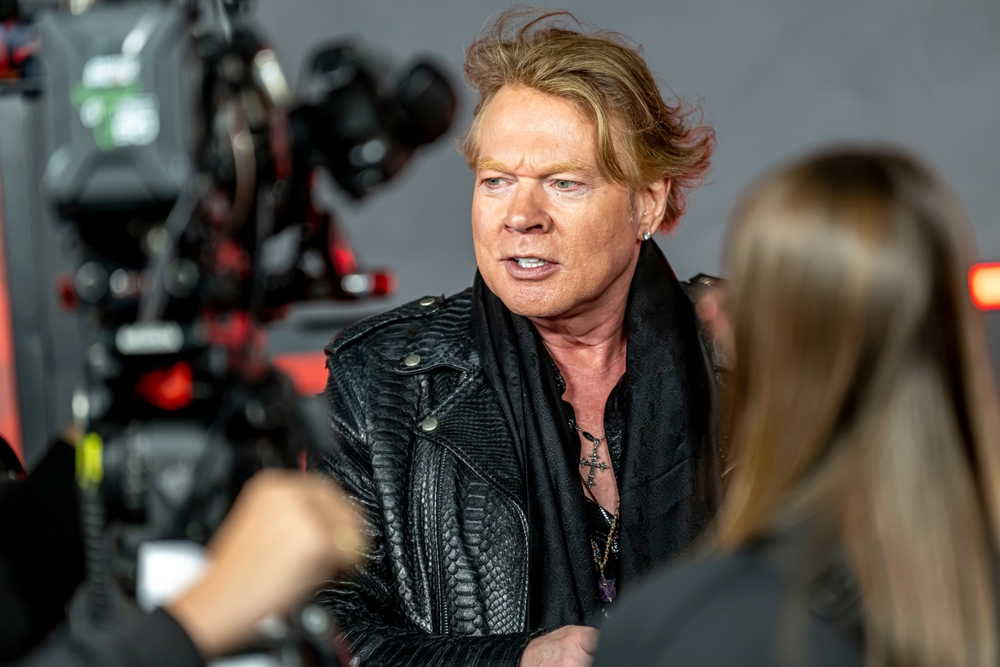November 5, 2025
Alan Niven Sues Guns N’ Roses Over Blocked Memoir, Sound N’ Fury

For years, Alan Niven was the man who kept Guns N’ Roses from tearing themselves apart. Now, the band’s former manager is fighting a different kind of battle, one over truth, ownership, and the right to tell his story. In November 2025, Niven filed a lawsuit against the legendary rock group, claiming they are unlawfully trying to block the release of his long-awaited memoir, *Sound N’ Fury*.
The case has reignited decades-old tensions and opened a larger question that reaches far beyond rock and roll: Can a confidentiality agreement silence someone’s life story forever? Niven has maintained in filings that his memoir isn’t an act of gossip, but an effort to “set the record straight” and share the truth of his own experiences.
Inside Alan Niven’s Lawsuit Against Guns N’ Roses
According to court filings obtained by *Loudwire*, the dispute centers on a 1991 confidentiality agreement signed when Niven parted ways with Guns N’ Roses at the height of their fame. Three members - Slash, Duff McKagan, and Izzy Stradlin reportedly signed the agreement, though frontman Axl Rose never did. That missing signature is now the crux of Niven’s case.
He argues that without Rose’s signature, the NDA is legally unenforceable. Niven also claims the band is interfering with his publisher’s ability to release *Sound N’ Fury*, costing him both income and creative freedom. The lawsuit further alleges that members of Guns N’ Roses have themselves spoken publicly about past events that fall under the same agreement, effectively invalidating its confidentiality clause.
Publishers describe the book as “clarity born from chaos,” offering a candid glimpse into the human side of rock’s most notorious era. Yet its publication remains frozen as legal threats mount. Behind every filing lies a deeper, more human story: an artist fighting to reclaim his voice after decades of silence.
A Battle Over Artistic Freedom
At its heart, the case is about more than one manager and one band; it’s about who owns the past. If a manager’s memories overlap with a brand’s legacy, who controls that narrative? Legal experts say the answer could reshape how memoirs, documentaries, and behind-the-scenes accounts are handled in the entertainment world.
If Niven wins, *Sound N’ Fury* could see release within months. If he loses, the story of one of rock’s wildest decades might remain locked away forever.
What This Lawsuit Means for Anyone Who’s Ever Signed an NDA
Alan Niven’s lawsuit against Guns N’ Roses raises a question that touches not just law, but the human right to speak freely. Millions of people, from musicians to tech workers, sign NDAs every year without realizing how easily they can be used to control speech and memory.
Entertainment-law specialist Dina LaPolt notes, “When an NDA lacks clarity, omits who’s bound, or tries to suppress someone’s lived experience, courts are increasingly unwilling to uphold it.” Under California Civil Code § 3426.1 and related trade-secret laws, NDAs protect specific, confidential business information, not the human experience. Once both parties have publicly discussed the same material, confidentiality protection often collapses.
Alan Niven’s Stand for His Story
Guns N’ Roses have declined to comment on the pending litigation, focusing instead on their Latin American tour with stops in Lima and Mexico City. Remaining resolute, Niven describes the fight as a matter of principle—a stand for his right to tell his story with honesty and integrity. Whether *Sound N’ Fury* ever reaches the public may depend not just on old signatures, but on a new legal understanding of who gets to own the truth.